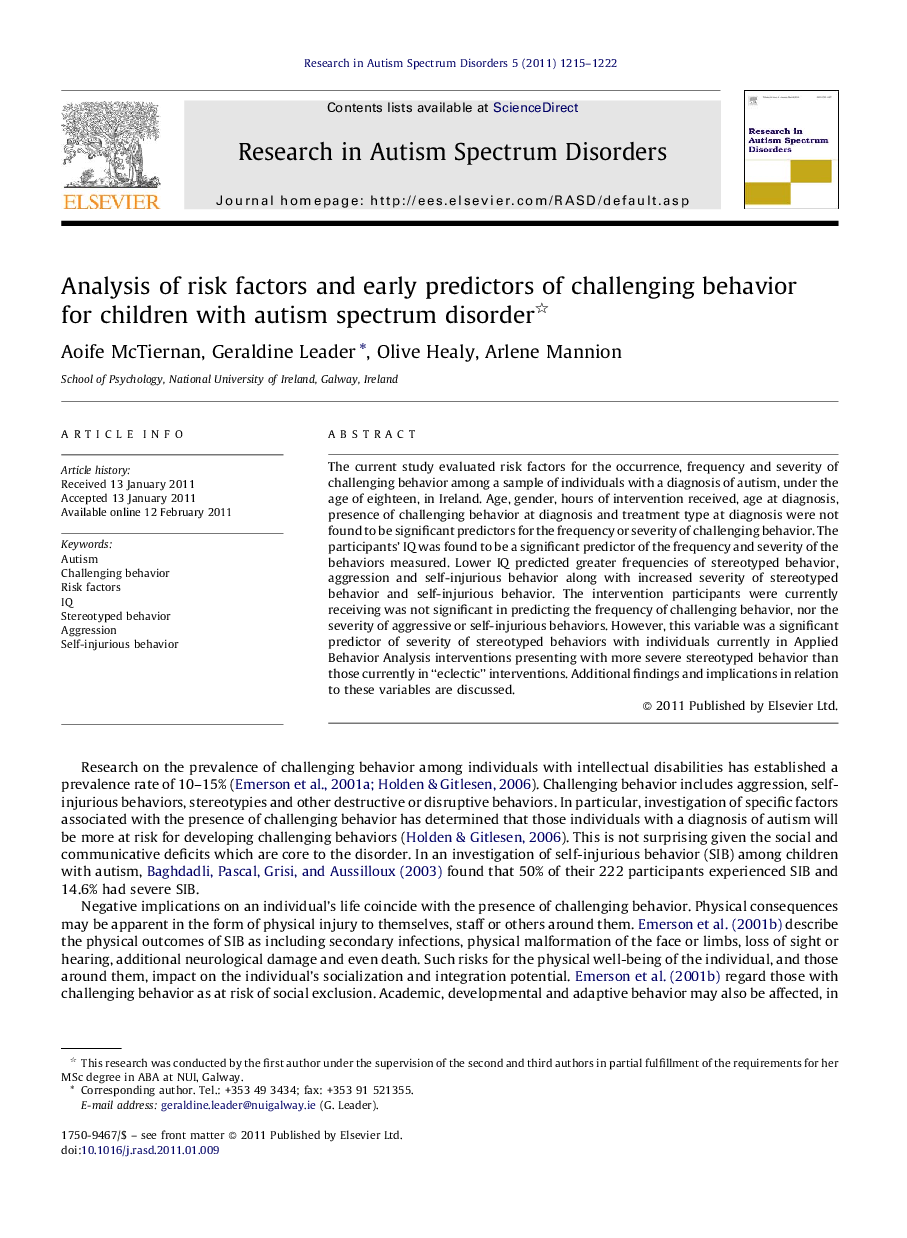| کد مقاله | کد نشریه | سال انتشار | مقاله انگلیسی | نسخه تمام متن |
|---|---|---|---|---|
| 370781 | 621883 | 2011 | 8 صفحه PDF | دانلود رایگان |

The current study evaluated risk factors for the occurrence, frequency and severity of challenging behavior among a sample of individuals with a diagnosis of autism, under the age of eighteen, in Ireland. Age, gender, hours of intervention received, age at diagnosis, presence of challenging behavior at diagnosis and treatment type at diagnosis were not found to be significant predictors for the frequency or severity of challenging behavior. The participants’ IQ was found to be a significant predictor of the frequency and severity of the behaviors measured. Lower IQ predicted greater frequencies of stereotyped behavior, aggression and self-injurious behavior along with increased severity of stereotyped behavior and self-injurious behavior. The intervention participants were currently receiving was not significant in predicting the frequency of challenging behavior, nor the severity of aggressive or self-injurious behaviors. However, this variable was a significant predictor of severity of stereotyped behaviors with individuals currently in Applied Behavior Analysis interventions presenting with more severe stereotyped behavior than those currently in “eclectic” interventions. Additional findings and implications in relation to these variables are discussed.
Research highlights▶ An evaluation of prevalence and risk factors for challenging behavior in 174 children with autism. ▶ The prevalence of challenging behavior was 93.7%. ▶ Ninety-two percent of participants displayed stereotyped behaviors; 56.3% aggressive behaviors and 48.9% self-injurious behavior. ▶ Higher IQ is associated with lower frequency and severity of challenging behaivor. ▶ Participants who received “eclectic” interventions at diagnosis scored highest for frequency and severity of challenging behavior.
Journal: Research in Autism Spectrum Disorders - Volume 5, Issue 3, July–September 2011, Pages 1215–1222